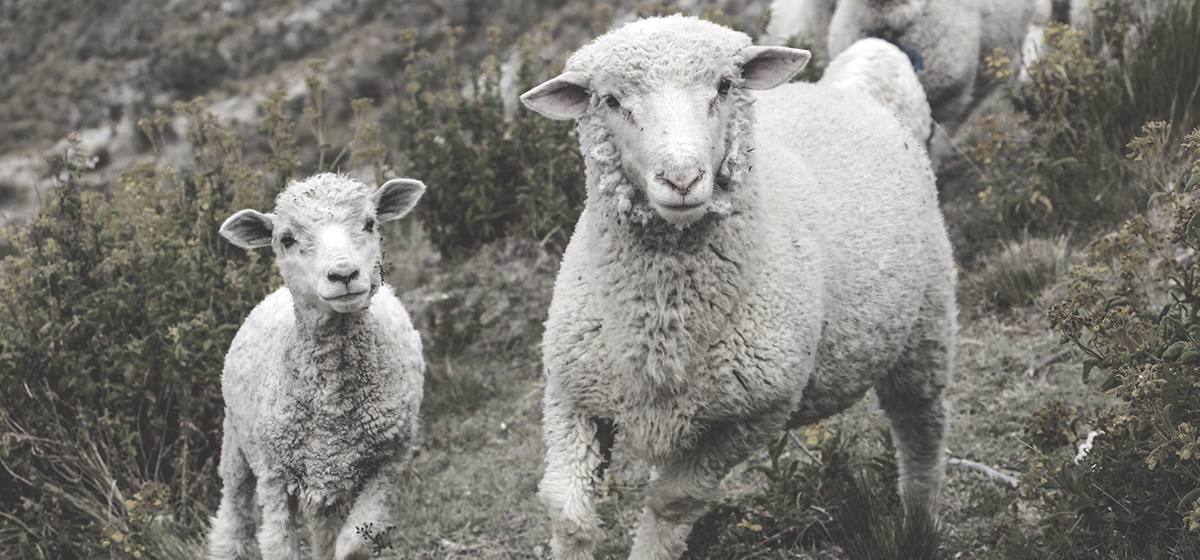Some dogs are not picky eaters. They eat anything we put in their bowl (sometimes even anything we accidentally leave on the table or drop on the floor!). While our canine friends are not choosy, as pet parents, we still want to give them the best and a bit of variety in their diet.
Adding variety to our dog’s diet is not only important for their health but it also makes mealtimes more fun. Lamb is quickly becoming a favourite alternative—and for good reason!
You must be thinking, ‘can my dog eat lamb?’ Yes, dogs can eat lamb. As with most meats, lamb is not at all toxic to your dog; canines are omnivores well-equipped to digest freshly prepared meat. As always, consult your vet before making any changes in your dog’s diet.
Why add lamb to your dog’s diet

Aside from beef and chicken, lamb is a great way for dogs to get the protein, fats, and essential fatty acids they need. It helps maintain digestive health, keeps teeth healthy, coats shiny, and provides energy.
If you have a physically active dog, lamb is a healthy and tasty treat after a workout. Lamb is full of protein that agile dogs need to thrive. Carbohydrates are a good source of quick energy, but protein gives your dog the building blocks their body needs. Because the dog’s body cannot store protein like it can fat and other nutrients, this must be provided in their daily diet.
Lamb is also a terrific alternative if your dog is sensitive to certain foods. Allergies can be a tricky thing—you need to know how they develop to treat them. But in most cases, it’s mostly because of excessive or near-exclusive consumption of one type of meat. Eventually, dogs’ bodies process the protein in that meat as a ‘familiar protein,’ which may result in allergic reactions. A novel protein source might be necessary, such as lamb.
Although lamb is a high-protein source, it should never be served raw or undercooked. Drain the fat and cook it separately before giving it to your dog. Too much fat in your dog’s daily diet can lead to severe health issues like pancreatitis. It’s always best to keep portions to a manageable amount.
Lamb health benefits

Other than being a tasty protein, lamb is high in other essential nutrients that contribute to a well-balanced, healthy diet. Here are some additional nutritional advantages of lamb dog food:
- Rich in omega fatty acids – lamb contains beneficial omega-3 and -6 acids. These fatty acids also help prevent inflammation and promote kidney and heart function. Omega fatty acids help dogs with arthritis and other long-term pain disorders.
- High in vitamins B12 and B3 – vitamin B12 is essential for a healthy immune system, nervous system, and RBC formation while vitamin B3 promotes better digestion and energy production.
- Rich in iron and zinc – these minerals work by keeping the body’s functions in good shape, which makes it easier for your dog to fight off illnesses. Zinc is a crucial component of thyroid function and metabolism, while iron is vital for blood production, giving your dog the energy they need.
Getting the right nutrients makes a world of difference between sickness and good health. Add lamb to your dog’s diet by trying our Free-Range Grass-Fed Lamb adult dog food. We use a unique recipe that includes antioxidant-rich manuka honey and vitamin-rich rosehip, as well as glucosamine and chondroitin for bone health.Our grain-free pet food is made in New Zealand with locally procured, single-source protein, making it suitable for dogs with allergies.
Lamb has numerous health benefits for your dog. As a natural source of healthy fats, minerals, vitamins, and acids, lamb is a superior choice—and the best part is that it is a flavour that dogs enjoy!
